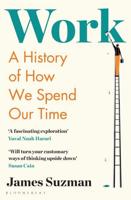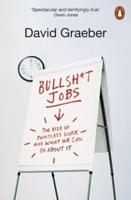Publisher's Synopsis
The sudden drop in America's productivity rate beginning in the early 1970s and the simultaneous increase in income inequality made a generation of American economists pessimistic about the nation's ability to grow faster or to deal with the growing gap between the rich and everyone else. Barry Bluestone and Bennett Harrison review the historical record and offer an elegant explanation of why the productivity drought occurred and why it is finally over. The potential for a sustained era of economic expansion more equitably shared is on the horizon, thanks to the revolution in computer and information technology that has now come of age.But potential, the authors argue, is one thing; realization is another. Though optimistic about the productivity boom, Bluestone and Harrison do not believe that the payoff to the technology revolution can be fully realized without a sea change in economic policy. Their discerning analysis reveals that the current obsession with federal debt reduction and inflation control -- the very essence of what they call the "Wall Street model" -- will in fact sabotage growth. Only by embracing a "Main Street model" that revitalizes government-sponsored R&D, public infrastructure, education, and training -- all of which have helped underwrite spectacular economic growth spurts in the past -- can America reach its potential for equitable expansion in the coming century. Flying in the face of the ruling economic orthodoxy, GROWING PROSPERITY is a beautifully argued work that goes beyond critique to envision a way to add $3.2 trillion to the economy over the coming decade. With its provocative thesis and its clear prescriptive message, it will be of great interest to everyone with a stake in our economic future.










